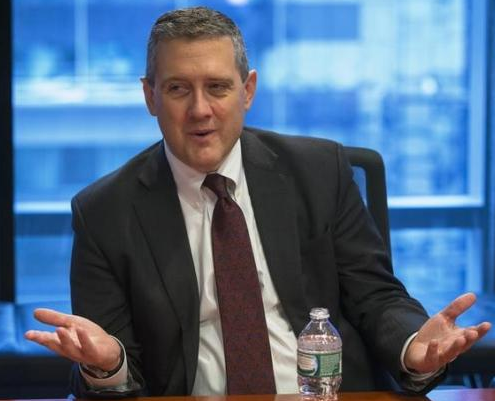Markets set up central bankers for a fall

If we go all the way back to Friday, the message from St Louis Fed President James Bullard was clear: monetary policy is in 'a good place' and that the Fed would be willing to consider moving rates on coronavirus if it had a major effect on US economy "but we would have to get to that juncture."
Three days later, the market is pricing in multiple rate cuts including an emergency cut before the March 18 meeting.
Bullard wasn't alone in his sentiment, other said the same. Of course, you can argue that there have been changes in the number of cases but the S&P 500 is now higher than where it was when Bullard made the comments.
The Fed and other central bankers are now boxed in because of headlines like this:

If they don't act now, markets will melt down and they'll be scapegoats (if they aren't already).

The real problem here is a decade in the making. Markets are now so conditioned to get their way and to get help whenever there is a hiccup, that it's become a self-reinforcing cycle.
In 2018 when the Fed hiked and the market started screaming and kicking, they turned around and cut rates. In October when there were a few days of pain, they pumped in billions in liquidity. Now markets want another rescue.
If the Fed had a habit of saying 'no' once in awhile, it might be a two-way market but instead they've turned the market into a spoiled two-year-old by giving it a lollypop every time it cries.
I'm not saying central banks shouldn't cut now (it can't hurt); but when they inevitably make a move, it loses its power and element of surprise -- thus the entire effect is weakened. And as soon as the cut comes, the market will want more. The BOJ and ECB have delivered on that promise over and over again and they have no arguably gone too far into experimental policy that has backfired on the banking system and left them with no bullets.
Wouldn't the Fed have been better off holding onto a few bullets in 2019 and keeping the S&P 500 at a 16 P/E rather than goosing the market and setting up a steeper fall that leaves them with a more-vulnerable market and less room to cut?
Another question is what the Fed will do if/when the virus fizzles? Will they turn around and bump rates back up? I can hardly imagine them having the courage; the market wouldn't like that.



